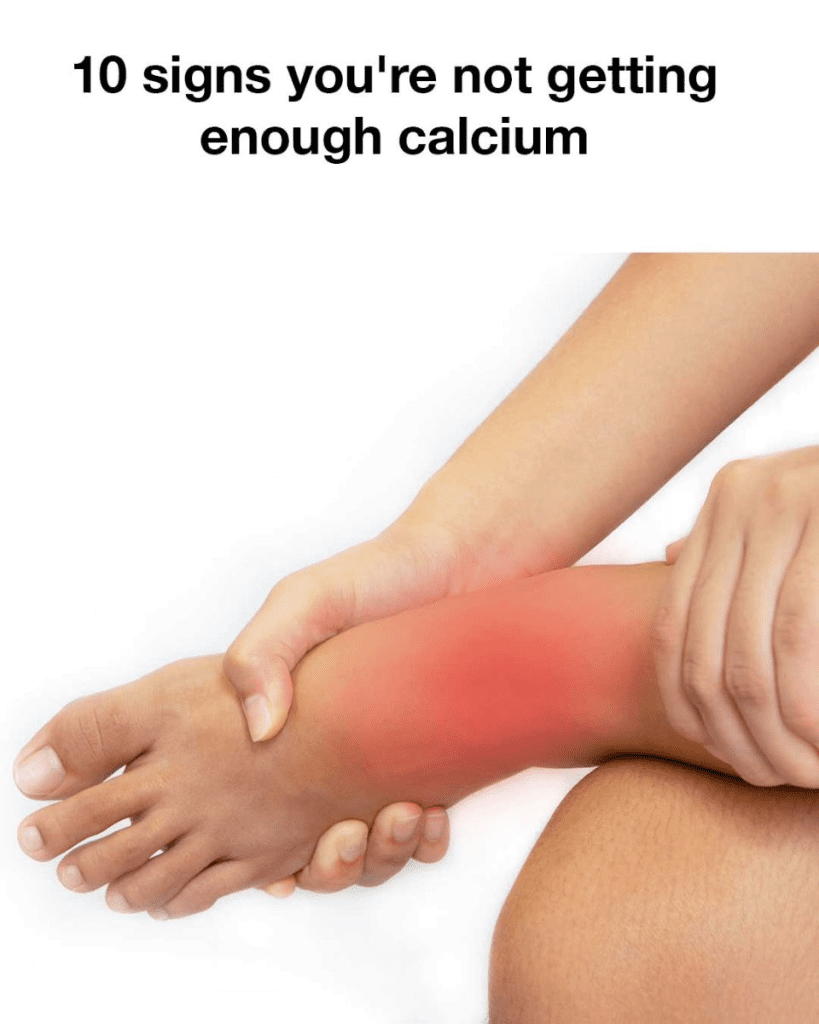Calcium is an essential mineral crucial for maintaining strong bones, healthy teeth, and numerous biological functions, including muscle contraction and nerve signaling. Despite its importance, many people fail to consume adequate calcium, leading to deficiency-related health problems. Understanding the signs and symptoms of calcium deficiency is key to taking proactive measures to safeguard your health.
Why Calcium Is Vital for Your Health
Calcium is more than just a mineral for your bones and teeth; it plays a central role in overall bodily functions. From enabling muscle contractions to regulating heartbeat and transmitting nerve impulses, calcium is indispensable. A deficiency in this nutrient can hinder these processes, posing significant health risks over time.

How Your Body Uses Calcium
Once consumed, calcium is absorbed in the intestines and stored predominantly in the bones and teeth, which act as reservoirs. It also circulates in the bloodstream, aiding muscle movements, blood clotting, and nerve signaling. The body constantly maintains a delicate balance of calcium levels by regulating absorption, storage, and excretion. When calcium intake falls short, the body compensates by withdrawing it from bones, weakening their structure.
Common Causes of Calcium Deficiency
Several factors can contribute to calcium deficiency, including dietary habits, health conditions, and lifestyle choices. Understanding these contributors can help you mitigate risks.
1. Poor Dietary Intake
A diet lacking calcium-rich foods is the primary reason for deficiency. Many people fail to consume enough dairy, leafy greens, or fortified products, leading to inadequate calcium levels.
2. Impaired Absorption
Certain conditions, such as celiac disease or Crohn’s disease, can interfere with calcium absorption in the gut. Additionally, some medications, like corticosteroids, may hinder calcium metabolism.
3. Lifestyle Factors
Habits such as smoking, excessive alcohol consumption, and high caffeine intake can reduce calcium absorption. Sedentary lifestyles also contribute to weaker bones over time.
4. Age and Hormonal Changes
Age-related factors, particularly in postmenopausal women, can significantly reduce calcium levels. Hormonal changes affect bone density, making calcium supplementation crucial during this stage.
Recognizing the Symptoms of Calcium Deficiency
Calcium deficiency can manifest in various ways, some of which may not be immediately obvious. Here are the most common symptoms to watch for:
Fragile and Brittle Nails
Noticing that your nails chip easily or feel unusually fragile? This could be one of the early signs of insufficient calcium, as your body struggles to maintain keratin structure.
Frequent Muscle Cramps
Leg and foot cramps, especially during the night, might signal a lack of calcium. This mineral is vital for proper muscle function, and a deficiency can lead to spasms and heightened nerve sensitivity.
Dental Issues
Calcium is essential for strong teeth and gums. Deficiency can cause tooth decay, gum disease, and an increased likelihood of tooth fractures or brittleness.
Tingling or Numbness in Limbs
Experiencing tingling or numbness in your hands and feet can be a subtle yet serious symptom. Calcium’s role in nerve transmission means a deficiency can disrupt normal sensation.
Osteopenia and Osteoporosis
Prolonged calcium deficiency can lead to bone-density problems like osteopenia and, eventually, osteoporosis. These conditions weaken bones, increasing the risk of fractures and chronic pain.
Fatigue and Weakness
Calcium is crucial for cellular energy production. A deficiency can leave you feeling unusually fatigued or weak, even after adequate rest.
Dry Skin and Coarse Hair
Calcium deficiency may manifest externally, causing dry, flaky skin and brittle, coarse hair. Proper calcium levels support healthy skin cell renewal and hair growth.
Irregular Heartbeats
Calcium is essential for heart muscle function. Deficiency can cause arrhythmias or palpitations, signaling your heart may be struggling to maintain its rhythm.
Cognitive Challenges
Low calcium levels can contribute to “brain fog,” characterized by poor concentration, forgetfulness, and reduced cognitive performance.
Preventing Calcium Deficiency
Preventing calcium deficiency involves making informed dietary and lifestyle choices. By understanding your calcium needs, you can maintain optimal levels for long-term health.
Incorporate Calcium-Rich Foods
Including a variety of calcium-rich foods in your diet is the most effective way to ensure adequate intake. Add these to your meals:
- Dairy products like milk, yogurt, and cheese.
- Leafy greens, including kale, spinach, and broccoli.
- Fortified plant-based milks and cereals.
- Nuts and seeds, especially almonds and chia seeds.
Adopt a Calcium-Friendly Lifestyle
Regular weight-bearing exercises, like walking or strength training, improve bone health. Avoid smoking and excessive alcohol or caffeine consumption, as these habits can deplete calcium reserves.
Consider Calcium Supplements
If dietary changes aren’t sufficient, calcium supplements may be necessary. Options like calcium carbonate and calcium citrate can help fill the gap, but always consult your healthcare provider before starting supplementation to avoid overdosing.
When to Consult a Healthcare Professional
If you’re experiencing symptoms of calcium deficiency, such as chronic fatigue, frequent cramps, or dental issues, consult a healthcare provider. Blood tests can determine calcium levels, and a tailored plan can help address deficiencies effectively.
Conclusion: Prioritize Your Calcium Intake
Calcium is indispensable for your overall health, influencing not just bones and teeth but critical bodily functions like muscle movement and nerve signaling. Recognizing the signs of deficiency and addressing them early can help prevent serious health issues down the line. By eating a balanced diet, considering supplements when necessary, and seeking medical advice, you can ensure that your calcium levels support a vibrant and active life.


